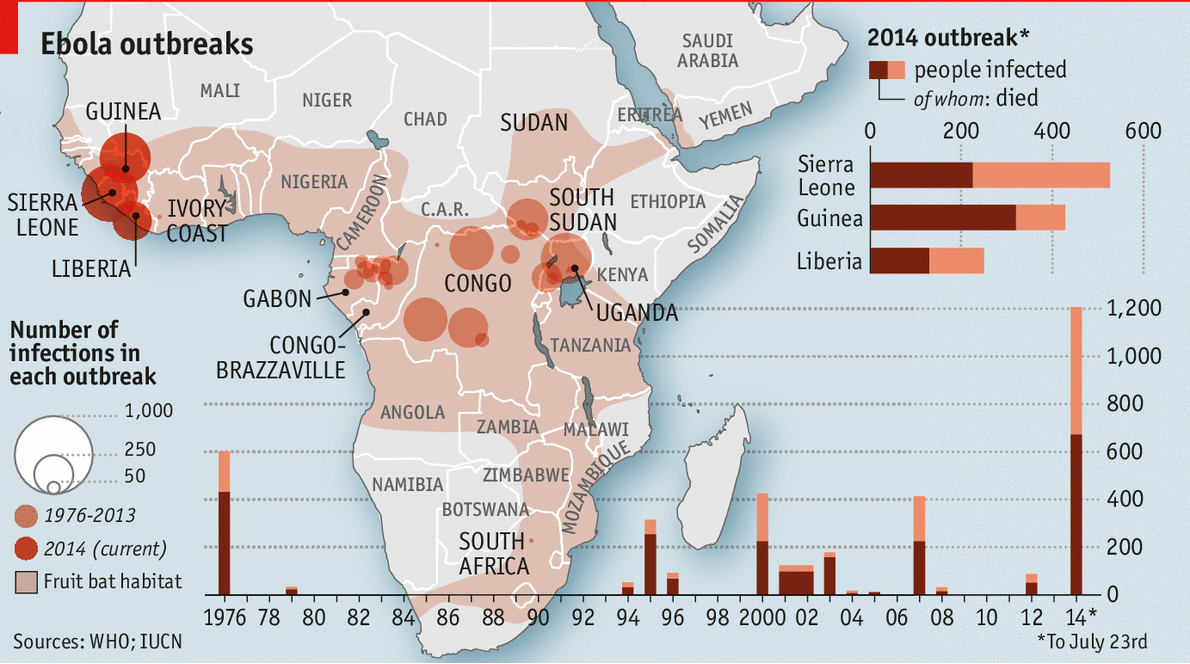It would be irresponsible to not post this.
The Centers for Disease Control and Prevention have just confirmed that the first-ever case of Ebola has been diagnosed in the US. The patient had already been placed in isolation because of his symptoms and because he had recently traveled to Liberia, which is experiencing an epidemic, before two tests confirmed the disease.
This patient is the first to be diagnosed outside Africa with the strain that is currently epidemic there, said CDC director Thomas Frieden, during a conference call with reporters. The outbreak has largely been concentrated in three countries: Liberia, Sierra Leone and Guinea, where 6,574 have been sickened and 3,091 have died so far.
“I have no doubt we will control this importation of Ebola so it does not spread widely in this country,” Frieden said.
While there are people out there who would hoax a story like this, there are multiple source for confirmation.
The Verge
CNN
Huffington Post
And while this is not cause for alarm, the confirmed patient has been isolated, it is cause for concern as there may well be other cases not yet diagnosed.
With thanks to RednGreen for pointing out useful information I should have included.
Because the natural reservoir host of Ebola viruses has not yet been identified, the manner in which the virus first appears in a human at the start of an outbreak is unknown. However, researchers believe that the first patient becomes infected through contact with an infected animal.
When an infection does occur in humans, the virus can be spread in several ways to others. Ebola is spread through direct contact (through broken skin or mucous membranes) with
- blood or body fluids (including but not limited to urine, saliva, feces, vomit, and semen) of a person who is sick with Ebola
- objects (like needles and syringes) that have been contaminated with the virus
- infected animals
- Ebola is not spread through the air or by water, or in general, food. However, in Africa, Ebola may be spread as a result of handling bushmeat (wild animals hunted for food) and contact with infected bats.
Healthcare providers caring for Ebola patients and the family and friends in close contact with Ebola patients are at the highest risk of getting sick because they may come in contact with infected blood or body fluids of sick patients.
During outbreaks of Ebola, the disease can spread quickly within healthcare settings (such as a clinic or hospital). Exposure to Ebola can occur in healthcare settings where hospital staff are not wearing appropriate protective equipment, including masks, gowns, and gloves and eye protection.
Dedicated medical equipment (preferable disposable, when possible) should be used by healthcare personnel providing patient care. Proper cleaning and disposal of instruments, such as needles and syringes, is also important. If instruments are not disposable, they must be sterilized before being used again. Without adequate sterilization of the instruments, virus transmission can continue and amplify an outbreak.
Once someone recovers from Ebola, they can no longer spread the virus. However, Ebola virus has been found in semen for up to 3 months. People who recover from Ebola are advised to abstain from sex or use condoms for 3 months.
Related Links
- Questions and Answers on the 2014 West Africa Ebola Outbreak
- Ebola Virus Disease Information for Clinicians in U.S. Healthcare Settings
- Frequently Asked Questions: Safe Management of Patients with Ebola Virus Disease (EVD) in U.S. Hospitals
- Infection Control for Viral Haemorrhagic Fevers in the African Health Care Setting
- Infection Prevention and Control Recommendations for Hospitalized Patients with Known or Suspected Ebola Hemorrhagic Fever in U.S. Hospitals
- Ebola Hemorrhagic Fever Outbreaks
- Filoviridae





